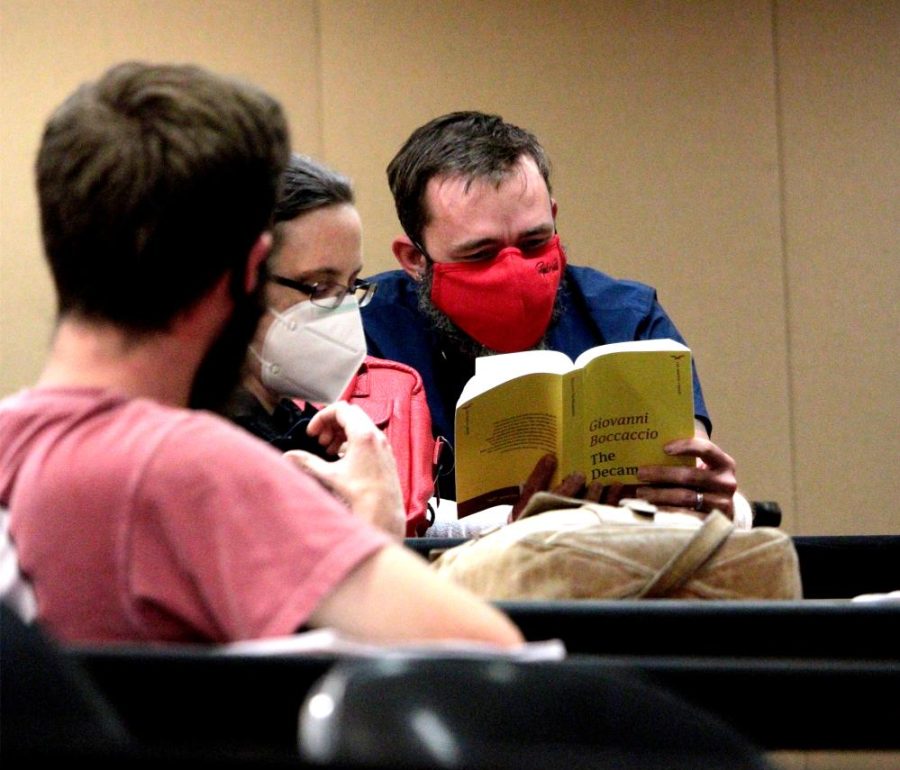‘Freadom’ appreciated with banned books event
October 4, 2021
Imagine your professor assigns you to read an excerpt from Shakespeare’s “Hamlet” for an assignment. Specifically the famous quote, “to be or not to be.”
You try to check out the book at your local library, but it has been banned. As you search throughout the city, you can’t find the influential piece anywhere.
Without it, you are unable to complete your assignment. But more importantly, this widespread piece has lost all potential to influence today’s literature.
When a book is banned, the question is then posed— to read or not to read?
Every year, the English Honor Society hosts an event where they read excerpts from books that have been banned for various reasons.
This event spreads awareness about banned books that discuss uncomfortable topics or disrupt the status quo.
Chloe Howard, the president of the English Honor Society, said many books are banned because they threaten systems created by people in power.
“Anything that disrupts the status quo is going to be challenged or removed because it brings up different viewpoints instead of [sticking to] one view on something,” Howard said. “[Banned books] then allow room for diversity and for any communication that is threatening to any of the systems that are already in place.”
Students brought their own favorite banned books, making the event interactive and representative of different viewpoints.
Crystal Mathews, a junior history major, brought “The Great Big Book of Families.”
According to Matthews, it was banned by the Lincoln Parish Library for having LGBTQ and sexually suggestive themes.
“It’s literally about different family dynamics and it has one page where it says some children have two mommies or two daddies,” Matthews said. “That was enough to have a handful of parents complain about it and [get it banned, which] I find really upsetting.”
Claire Robertson, an English graduate student, attended last year’s banned books event but was unable to bring her own book.
This year, Robertson brought “The Kite Runner” by Khaled Hosseini.
Robertson said she enjoys the event and will continue to attend because “It’s interesting to see which books are banned from where.”
Noah Young, the president of Psyciety, said many victims do not feel comfortable speaking about their abuse because of shame.
“Domestic abuse cases are typically silent situations where the victim feels too much shame to speak up,” Young said.
Many victims also feel as they have no one because the person they are closest to, which is their intimate partner, is abusing them, or they were forced to isolate themselves from family and friends.
Some of the best ways to help someone who is a victim of domestic abuse is by making time for them, listening without judging and validating the victim’s feelings, according to Very Well Mind.
However, there can be situations in which the signs of domestic abuse are not clear. In this case, the victim might feel helpless.
But you are not alone. There are resources to help victims of domestic abuse.
You can call 1-800-799-7233 or visit the National Domestic Violence Hotline for resources to help get out of abusive situations.



